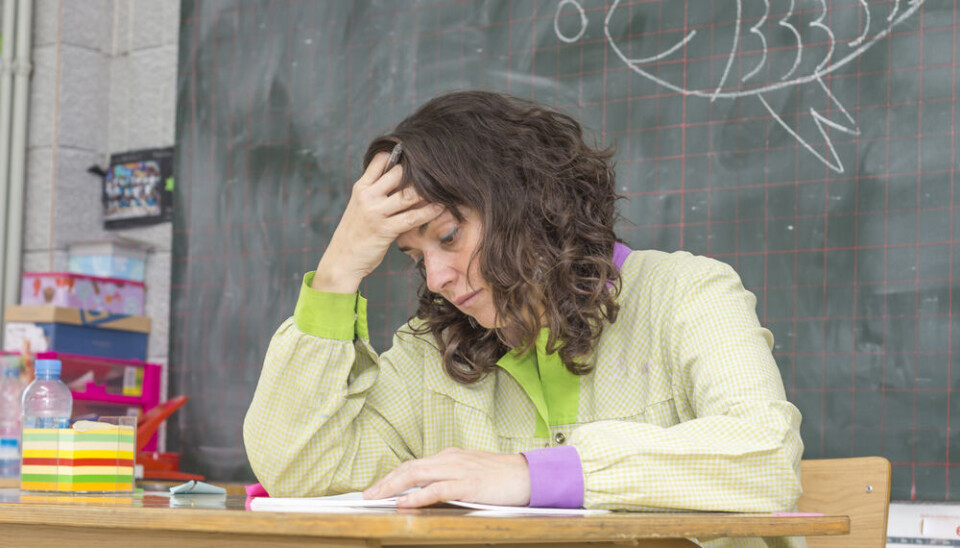Comment: Aggression in French schools must be stopped
Teacher Clara Villanueva describes the current climate in classrooms and some solutions to the problem
Social media can amplify insecurity, reward aggression and nurture dangerous ideologies
VCoscaron/Shutterstock
On many days during my career as a teacher I have been tired, fed-up, angry and unmotivated – but I have never felt scared. Until now.
Teaching is not a well-paid career in France. Compared with other teaching salaries in the EU, France comes well below Germany, Belgium and Spain.
The “best job in the world”, as it used to be called for its lifetime security, is not attracting nearly as many people as before. Add personal risk to the poor pay and there could be a recruitment crisis looming.
Terror drills in French schools
When I was teaching in a lycée we had numerous drills for fire and terrorist attacks.
The fire drill was easy. We had to take our class into the courtyard, count the students, and make sure they stayed together until the director told us to return.
The rehearsal for a terrorist intruder was much more stressful. As teachers we had to lock our classroom doors, pull down the blinds, turn off the lights, and order the pupils to get under their desks and stay there in total silence.
Nobody taught us how to deal with a panic attack, the need for the toilet, or how to stop the class joker from trying to make everyone laugh.
No teacher that I know thinks such drills are an overreaction or waste of time; although the danger is more likely to be a one-on-one attack than a whole school lockdown.
Daily aggression
Aggressive behaviour towards teachers is becoming more frequent in France.
On average, 12% of national education staff are subjected to threats or insults each year (compared with 7% of all employees). When it comes to physical violence, approximately 0.6% of education staff (including teachers, headteachers, counsellors, etc.) are victims of an assault every year.
That equates to 10,000 incidents nationwide.
On my first day at the lycée I asked a student why he had been expelled from his last school. “Because I broke a chair over my teacher’s head,” he answered, to the merriment of the rest of the class.
None of these incidents make news until something really big happens. France woke up on October 16, 2020 to the shocking news that Samuel Paty, a history teacher, had been decapitated after giving his students a lesson on free speech.
Murdered teachers
This was not the only murder of a teacher in recent years. In 2012, Jonathan Sandler was killed at the school where he worked in Toulouse in a terror attack, in 2014, Fabienne Terral-Calmès was stabbed before her pupils by a deranged mother, and in 2018 John Dowling, an English language teacher, was killed by a student who had been expelled.
The year 2023 saw the assassination of two more teachers, Agnès Lassalle and Dominique Bernard.
The most recent killing is perhaps the most disturbing because the murderer was a 14-year-old schoolboy. On June 10, 2025, outside the Françoise-Dolto secondary school in Nogent (Haute-Marne) and during a random bag check organised with the gendarmes, the pupil pulled out a knife and stabbed a 31-year-old educational assistant seven times.
When asked why he had done it, the teenager said that he had wanted to kill “a supervisor, any supervisor”, for no other reason than a fascination with violence and a loss of bearings.
What is going wrong?
Schools used to be safe places. Violence has many complex causes but two of them must be addressed.
One is a decline in the value placed on education and the consumerisation of society. Where parents used to respect their children’s teachers and defer to their judgement, they now more often regard them as suppliers of a service and behave like indignant consumers.
More important is the obviously pernicious effect of social media. The recent Netflix series Adolescence graphically illustrated the harm the online world can do to a child’s mental health.
The murder of Samuel Paty was a real-world case of the same thing. The killer relied on a distorted second or third-hand report of the free speech class to reach the conclusion that the teacher had “offended the prophet Mohammed”.
We all know that young people spend too much time in front of screens. Adolescence also emphasised the absence of meaningful adult supervision and intervention during those periods.
Parents, teachers, and even police seem unaware of, or unprepared for, the online influences shaping the lives of children and young people.
I know this first-hand from my current job teaching university students: no one has ever shown them how to express and manage their emotions.
There is no one easy way to reduce the violence. Security barriers can only do so much. Talking and listening are essential: assessing the mental health of students before it gets out of hand.
One immediate measure is to prohibit the use of phones in educational establishments, but it needs leadership and a consensus.
As it is, I spend a lot of time asking students to put away their phones before starting a class, but I cannot do anything about them using one outside the classroom and being drawn into the disturbing content they receive through the “infinite scroll”.
I am scared. Perhaps not directly of being stabbed in my classroom, but of the way things are going; of the latitude given to social media to influence teenagers in a period of their lives when their brains are still forming.
Social media can amplify insecurity, reward aggression and nurture dangerous ideologies if left unchecked.
When children are shaped more by what they see on their screen than the lessons that personal interaction can bring (empathy, give-and-take, etc) all of us, not just teachers, should be very concerned.





























